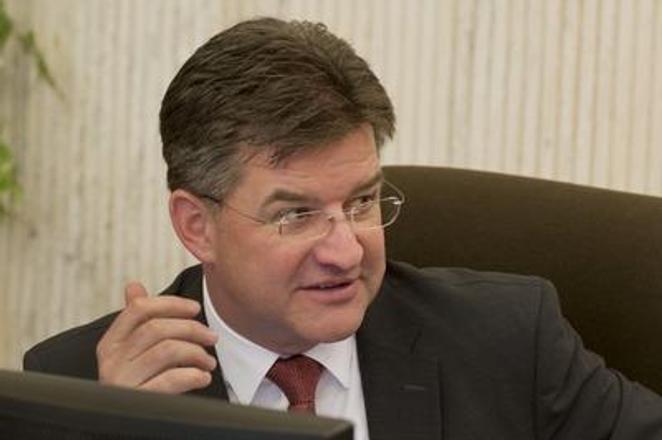Lajčák said that he appreciated the quality and intensity of Slovak-Swiss bilateral relations, which will gain new impetus due to Swiss President Johann Schneider-Ammann’s visit to Slovakia in June. Both officials praised cooperation between the two states in matters of politics, trade and commerce, science and innovations. Lajčák also mentioned consular cooperation, as Switzerland represents Slovakia in six countries (South Africa, Kyrgyzstan, Nepal, Sudan, Tanzania and Tunisia), where Slovakia does not have its own embassy.
Slovak Deputy Prime Minister Lajčák has also expressed a determination to continue with cooperation in the Visegrad Four + Switzerland format (V4 = the Czech Republic, Hungary, Poland, Slovakia), while praising Bern’s active role in contributing to the International Visegrad Fund.
A pivotal topic of their discussion was Slovakia’s presidency of the EU. Although Switzerland is not an EU member, there is integration in terms of multiple European policies and Switzerland has adopted a large amount of EU legislation.
There are, however, several unresolved questions in EU-Swiss relations that were further complicated by the Swiss referendum against mass immigration – including from EU countries – that took place in February 2014 and was passed by only a small margin (50.33 voted against immigration). The EU and Switzerland are currently discussing how to implement the referendum’s results without limiting the existing agreements on the free movement of people. This discussion may culminate during Slovakia’s presidency of the EU, which is set to begin on July 1.
“Slovakia would like to contribute constructively to finding mutually acceptable solutions that will enable EU-Switzerland relations to move forward,” stated Lajčák, as quoted by TASR after the meeting with Burkhalter, who was Swiss president as well as foreign minister during 2014.



 Foreign and European Affairs Minister Miroslav Lajčák (source: TASR)
Foreign and European Affairs Minister Miroslav Lajčák (source: TASR)